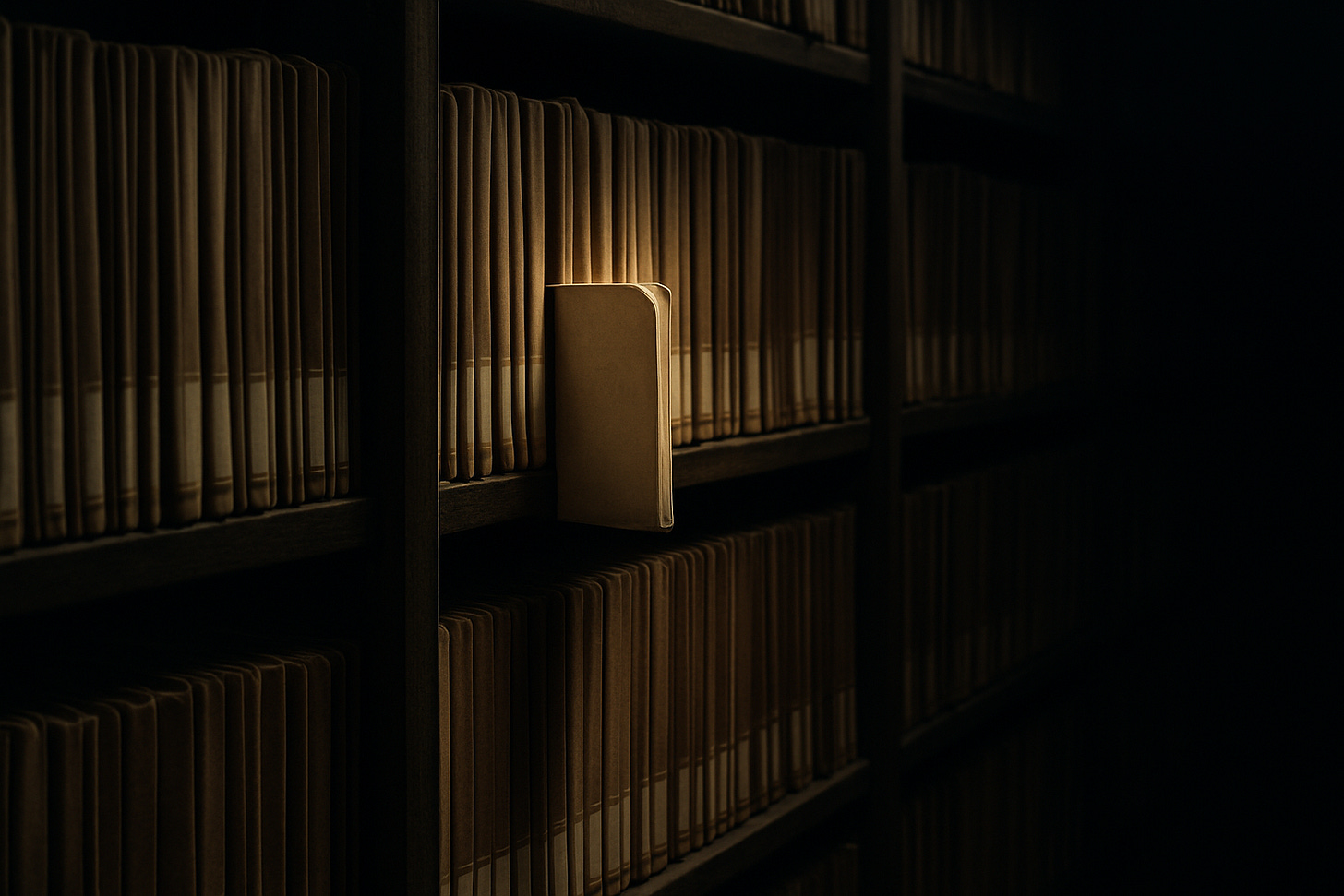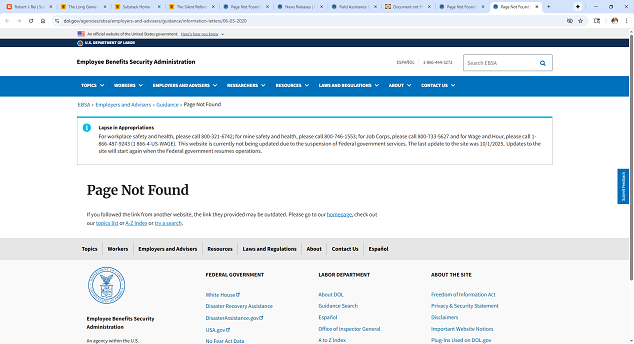The Missing Pages
When transparency darkens, history begins to repeat itself invisibly.
“Every tyranny must first erase its own trail.”
— Václav Havel
A lone file illuminated amid darkened archives—what remains visible when truth itself is being quietly shelved.
The Missing Pages
When transparency darkens, history begins to repeat itself invisibly.
Introduction
The health of a democracy can be measured by the visibility of its paperwork. When official records begin to vanish—quietly, without explanation—it is not bureaucracy malfunctioning; it is authority learning to live without witnesses. The Missing Pages examines that turning point, when transparency ceases to reveal and begins to conceal.
It began with a simple instinct—the archivist’s reflex to verify. I returned to the official sources that had underpinned earlier essays, expecting to confirm what had already been written. Instead, I met silence: the white austerity of a “Page Not Found” screen.
At first, it seemed trivial—a server update, a routine migration. Yet the pattern was precise. Pages that once defined fiduciary responsibility, citizen oversight, and administrative procedure had been withdrawn, not revised. The law itself was intact, but the mirrors through which the public once watched it work had been turned to the wall.
This was not an error; it was a withdrawal of presence.
Every democratic system rests on the ability of its citizens to witness its record. Laws do not live in statutes alone—they live in the evidence of their enforcement. The disappearance of those evidentiary traces marks the point at which transparency begins to devour itself: visibility without verifiability, access without continuity. It is the first movement in what I have come to call the darkening of transparency—a process where the performance of openness conceals the extinction of accountability.
The missing pages are more than digital absences. They are the negative imprint of a new architecture: administrative simulacrum. Government now appears to function exactly as before—portals active, seals intact, statements issued—yet the underlying logic has reversed. Authority no longer documents its actions to prove legitimacy; it curates visibility to preserve illusion.
Each vanished record is a stroke in the redaction of memory. What was once a public ledger has become a managed exhibit, maintained by unseen custodians whose allegiance lies not with law but with continuity of control. The citizen encounters light, not truth.
This is the moment when transparency ceases to illuminate and begins to blind.
In such a system, history becomes unreadable in real time. The past cannot be audited because its pages are continually rewritten under the guise of update or migration. The present cannot be trusted because it arrives already edited. The future—stripped of reference—becomes a controlled experiment in perception.
Yet even in darkness, there are those who keep copies. Screenshots, archives, printed pages—small acts of civic defiance that resist deletion. These fragments are the seeds of continuity, proof that remembrance still exists outside the official frame.
To read what remains is to practice a form of quiet resistance. It is to insist that truth is not what stays online but what survives erasure. The missing pages are not gone; they are waiting—for those willing to look again, to rebuild the record line by line, before the archive itself forgets what it was meant to hold.
At this threshold:
If a democracy can no longer show its own paperwork, it begins to forget what it owes its people.
That is what the missing pages mean.
What once could be read and verified—laws, bulletins, public guidance—has started to vanish behind polite messages about “updates” and “maintenance.” We are told everything is fine, but the record no longer matches the reassurance.
This is not just about websites. It is about how power now hides behind the appearance of openness. The government still posts news, photos, and speeches, yet the pages that once explained how decisions were made, who was accountable, and where the limits of authority lay have quietly gone dark.
When that happens, the burden of memory shifts to us. Citizens become the keepers of the archive. Screenshots, saved documents, notes—small acts of care become acts of defense. Because the truth of any nation depends on its ability to be verified, and when official transparency fails, only the public record we keep ourselves can hold it together.
If we want the future to remain ours, we must remember the present clearly—before someone edits it out of existence.
From this page forward, the work of remembrance begins.
Thank you for reading;
With quiet vigilance,
A citizen who refuses silence.
Robert J. Rei, November 3, 2025




Ukraine is using writing software to insure it's history. It can be spread quickly by phone or pc
A synchronous shattering insight into one of the many illusions underlying our social belief in all Progress as benefic. We were just discussing the influence and historical implications of a direct ancestor’s rôle in archiving of the birth of America’s Foundation. William Spottiswoode: Benjamin Franklin’s secretary and notetaker of the discussions in the American Constitutional Convention in Pa: May-September 1787. He participated as archivist, later as publisher, in this historical moment of the codification of the American Constitution after the 1776 Articles of Confederation.
The demand today seems to be that we become a collective of equal archivists.